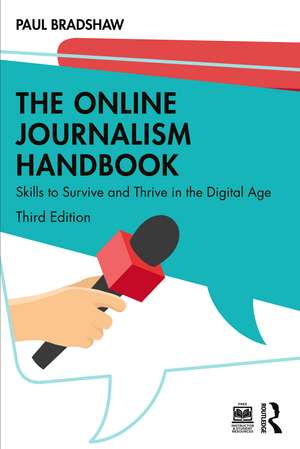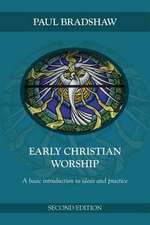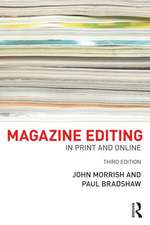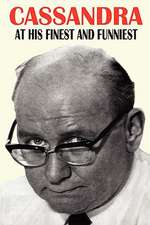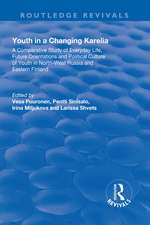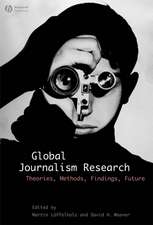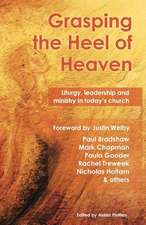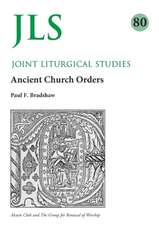The Online Journalism Handbook: Skills to Survive and Thrive in the Digital Age
Autor Paul Bradshawen Limba Engleză Paperback – 28 iul 2023
In this new edition, Paul Bradshaw presents an engaging mix of technological expertise with real-world practical guidance to illustrate how those training and working as journalists can improve the development, presentation, and global reach of their stories through webbased technologies.
Thoroughly revised and updated, this third edition features:
- A new chapter dedicated to writing for email and chat, with updated case studies
- New sections covering online abuse, news avoidance, and trust
- Updated coverage of accessibility, inclusivity, and diversity in sourcing, writing for social media, and audio and video
- New formats, including social audio, audiograms, Twitter threads, the “Stories” format, charticles, and “scrollytelling”
- Expanded international examples throughout
The companion website for this book further enhances student knowledge through regularly updated case studies, real-time development reports, and in-depth discussion pieces from cutting-edge sources.
| Toate formatele și edițiile | Preț | Express |
|---|---|---|
| Paperback (2) | 305.43 lei 3-5 săpt. | +28.27 lei 7-11 zile |
| Taylor & Francis – 28 iul 2023 | 305.43 lei 3-5 săpt. | +28.27 lei 7-11 zile |
| Taylor & Francis – 21 aug 2017 | 337.62 lei 6-8 săpt. | |
| Hardback (1) | 1011.51 lei 6-8 săpt. | |
| Taylor & Francis – 28 iul 2023 | 1011.51 lei 6-8 săpt. |
Preț: 305.43 lei
Nou
Puncte Express: 458
Preț estimativ în valută:
58.45€ • 63.47$ • 49.10£
58.45€ • 63.47$ • 49.10£
Carte disponibilă
Livrare economică 01-15 aprilie
Livrare express 18-22 martie pentru 38.26 lei
Preluare comenzi: 021 569.72.76
Specificații
ISBN-13: 9780367337353
ISBN-10: 0367337355
Pagini: 362
Ilustrații: 15 Halftones, black and white; 15 Illustrations, black and white
Dimensiuni: 174 x 246 x 22 mm
Greutate: 0.6 kg
Ediția:3 ed
Editura: Taylor & Francis
Colecția Routledge
Locul publicării:Oxford, United Kingdom
ISBN-10: 0367337355
Pagini: 362
Ilustrații: 15 Halftones, black and white; 15 Illustrations, black and white
Dimensiuni: 174 x 246 x 22 mm
Greutate: 0.6 kg
Ediția:3 ed
Editura: Taylor & Francis
Colecția Routledge
Locul publicării:Oxford, United Kingdom
Public țintă
Postgraduate and UndergraduateCuprins
List of Figures
List of Tables
Acknowledgements
List of Tables
Acknowledgements
- Introduction
- Histories, futures, and the changing business and technologies of journalism
- Finding leads and sources online
- Writing for the web
- Writing for social media
- Email newsletters, chat and curation
- Live and mobile journalism — and verification
- Online audio
- Video for the web and social media
- Data Journalism
- Interactivity, code and analytics
- Community, social media management and UGC
Notă biografică
Paul Bradshaw is an award-winning journalist who runs the MA in Data Journalism and the MA in Journalism at Birmingham City University, while also working in the BBC’s Data Unit. He has covered developments in online journalism for over a decade on the Online Journalism Blog and is internationally recognised for his contributions to the development of data journalism in particular, working with organisations ranging from The Guardian and The Bureau of Investigative Journalism to Der Tagesspiegel and the Balkan Investigative Reporters Network. He is the author of a number of books and book chapters including Mobile-First Journalism, Snapchat for Journalists, and Finding Stories in Spreadsheets.
Descriere
The Online Journalism Handbook offers a comprehensive guide to the ever-evolving world of digital journalism, showcasing the multiple possibilities in researching, writing, and storytelling provided by new technologies.
Recenzii
"The Online Journalism Handbook provides a good overview of the various types of online news that journalists are asked to produce today." --Barbara Jungwirth, Reliable Translations
Written in an engaging style... Logical chapter breakdown – relatively easy to find what you want at a glance...Would be nice to get better spread of visuals throughout the text. – Catherine O'Connor, Head of Centre for Journalism, Leeds Trinity University
Intelligently and accessibly written, even when dealing with some fairly complex material... The book has filled a gaping hole in the field!...Some of it...is a touch too complex for level one or two undergraduates. – Sharon Wheeler, Senior Lecturer in Journalism, Portsmouth University
It covers most, if not all, of the current areas that are impacting on and changing the dynamics of contemporary journalistic practice... We continue to hear that hyperlocal/community journalism will play a role in shaping the future of the industry... Would an updated edition benefit from a closer look at this debate? – David Randles, University of Salford
It debunks myths about the internet and online journalism and is written in an accessible, intelligent, clear style without any unnecessary techno-babble. It is highly suitable for both students and journalism lecturers... I feel there could be more on how journalists use online tools to research news and features...Some interactive exercises and MCQs would also be useful teaching tools. – Sallyanne Duncan, Programme Director for the MLitt Digital Journalism, Strathclyde University
I very much like the blend of theory and practical in this text, which provides a comprehensive perspective of what had been for me, a gap in the market... There is also scope to look at useful apps for journalists.g. AudioBoo and SoundCloud etc... Perhaps podcasts or vodcasts with the authors/specialist case studies might be one idea? – Dr Amanda Geary Pate, Programme Leader BA (Hons) Journalism/Lecturer in Journalism, University of the West of Scotland
It might be clearer if all the research tips were brought into one section in the book... Perhaps it might make more sense to have a general chapter on multimedia that brought together audio and video... It might make sense to look more at business models/revenue generation for online journalism, at setting up sites and online media businesses and at new advertising models. –
Jim McClellan, Principal Lecturer in Journalism/Course Leader, BA (Hons) Journalism, University of Westminster
Written in an engaging style... Logical chapter breakdown – relatively easy to find what you want at a glance...Would be nice to get better spread of visuals throughout the text. – Catherine O'Connor, Head of Centre for Journalism, Leeds Trinity University
Intelligently and accessibly written, even when dealing with some fairly complex material... The book has filled a gaping hole in the field!...Some of it...is a touch too complex for level one or two undergraduates. – Sharon Wheeler, Senior Lecturer in Journalism, Portsmouth University
It covers most, if not all, of the current areas that are impacting on and changing the dynamics of contemporary journalistic practice... We continue to hear that hyperlocal/community journalism will play a role in shaping the future of the industry... Would an updated edition benefit from a closer look at this debate? – David Randles, University of Salford
It debunks myths about the internet and online journalism and is written in an accessible, intelligent, clear style without any unnecessary techno-babble. It is highly suitable for both students and journalism lecturers... I feel there could be more on how journalists use online tools to research news and features...Some interactive exercises and MCQs would also be useful teaching tools. – Sallyanne Duncan, Programme Director for the MLitt Digital Journalism, Strathclyde University
I very much like the blend of theory and practical in this text, which provides a comprehensive perspective of what had been for me, a gap in the market... There is also scope to look at useful apps for journalists.g. AudioBoo and SoundCloud etc... Perhaps podcasts or vodcasts with the authors/specialist case studies might be one idea? – Dr Amanda Geary Pate, Programme Leader BA (Hons) Journalism/Lecturer in Journalism, University of the West of Scotland
It might be clearer if all the research tips were brought into one section in the book... Perhaps it might make more sense to have a general chapter on multimedia that brought together audio and video... It might make sense to look more at business models/revenue generation for online journalism, at setting up sites and online media businesses and at new advertising models. –
Jim McClellan, Principal Lecturer in Journalism/Course Leader, BA (Hons) Journalism, University of Westminster
